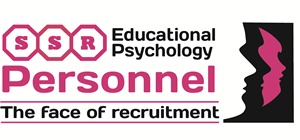We work in niche global disciplines where we understand the market dynamics of recruiting from an entry-level experienced mid-level role to senior executives. The recruitment approach that we suggest is based on the specific demands of any position, being agile and understanding the requirements for particular skills, the level of seniority, confidentiality required, and the resources needed to undertake an assignment effectively.
Our approach can include:
Contracted or Interim solutions – we can provide specialists in the short or longer-term we have undertaken over 40,000 assignments since 1986.
Contingent – permanent recruitment with a fee on successful placement.
Executive search –preferred by our clients looking for a key hire, where you require a competency-based approach with extensive background checks and transparent recruiting methods that underpin your hiring selection.
Whichever method we undertake, clients will benefit from the largest international applicant database and network of contacts of over 5 million reference points built up over 30 years in our niche markets. These highly effective resources are complemented by dedicated researchers and mapping tools available from being part of a £900 million revenues recruitment company with award-winning brands and a sizable group digital media arm.
We offer video interviewing, personality assessment and aptitude testing for applicants.
An employer may request a DBS check (also referred to as a disclosure check) as part of their recruitment process. These checks are processed by the Disclosure and Barring Service (DBS).
The types of check are as follows:
- A basic check, which shows unspent convictions and conditional cautions
- A standard check, which shows spent and unspent convictions, cautions, reprimands and final warnings
- An enhanced check, which shows the same as a standard check plus any information held by local police that’s considered relevant to the role
- An enhanced check with a check of the barred lists, which shows the same as an enhanced check plus whether the applicant is on the adults’ barred list, children’s barred list or both
The Update Service is an online subscription that allows you to keep your standard or enhanced certificates up-to-date and allows employers to check a certificate online.
You can join the Update Service as soon as you have your application form reference number.
Please contact Holly Barnes hbarnes@ssr-personnel.com for further information on what we need in order to process your DBS.
From 6 April 2021 All public authorities and medium and large-sized clients outside the public sector are responsible for deciding if the rules apply.
If a worker provides services to a small client outside the public sector, the worker’s intermediary is responsible for deciding the worker’s employment status and if the rules apply.
You may be affected by these rules if you are:
- a worker who provides their services through their intermediary
- a client who receives services from a worker through their intermediary
- an agency providing workers’ services through their intermediary
If the rules apply, Income Tax and employee National Insurance contributions must be deducted from fees and paid to HMRC. In addition, employer National Insurance contributions and Apprenticeship Levy, if applicable, must be paid to HMRC by the person who pays the worker’s intermediary.
An umbrella company is a company that employs a temporary worker (an agency worker or contractor), often on behalf of an employment agency. The agency will then provide the services of the worker to their clients.
Umbrella companies do not find work for the workers they employ.
They can work differently but most umbrella companies employ workers using an employment contract which will set out your terms and conditions. This means the company must comply with employment law.
You are paid by the umbrella company because they are your employer. They will:
- pay you for the work you do for the employment agency’s clients
- deduct any Income Tax and employee National Insurance contributions due under PAYE (Pay As You Earn) from your pay
Understanding how you’re being paid is the best way to make sure you do not get caught up in tax avoidance.
Checking your payslips and contractual arrangements will help you confirm you are paying the right amount of Income Tax and National Insurance contributions, so you do not get an unexpected tax bill later.
